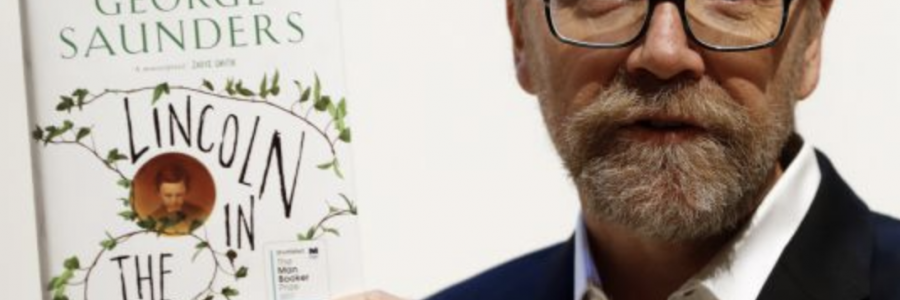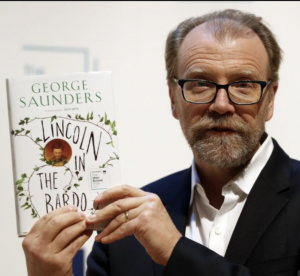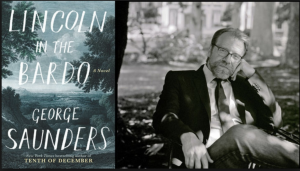
George Saunders wins Man Booker Prize

The American short story writer George Saunders’ Lincoln in the Bardo described both unique and extraordinary by 2017 judging panel, has won the Man Booker Prize.
The novel is about the night in 1862, the year into the Civil War, when Abraham Lincoln’s 11-year-old son Willie died of typhoid fever, and he buried him in a Washington cemetery and follows the fellow dead, also trapped in the graveyard and unwilling to accept death, who observe the boy as he desperately waits for his father’s return.
Lincoln in the Bardo graphically describes those visits, from the point of view of ghosts who haunt the graveyard in which Willie is buried., as the narration switches from ghosts to ghosts, as there are 166 ghosts, which is at first mystifying and flummoxing but becomes an exhilarating delight. Saunders brought to life these not-quite-dead souls in this other world”.
Baroness Lola Young, Chair of this years’ Booker ~Prize judging panel said “ there was this juxtaposition of the very personal tragedy of Abraham Lincoln with his public life, as the person who had really instigated the American “Civil War”.
“When you are reading a book, you know how many boxes in your mind come alive and that’s an incredible state of consciousness that makes us wiser and kinder and more engaged “ George Saunders

Lincoln in the Bardo is the first novel from American author George Saunders published by Penguin/Random House.
This year 144 titles were submitted for consideration for the 2017 prize, previously only open to a writer from Britain, Ireland and the Commonwealth and named for the financial services firm Man Group PLC, which sponsors the £50,000 prize.
Saunders said after accepting the prize, “ a wonderful honor” and proceeded to thank his wife Paula as “precious friend, artistic hero, visionary and my guide always to higher ground even when I have to go kicking and screaming.”
Accepting the £ 50,000 price in London’s Guildhall, Saunders said “ As you might have noticed, we live in a strange time. I have noticed it, so the question at the heart of the matter I think is pretty simple: do we respond to fear with exclusion and negative projection and violence? Or do we take that ancient great leap of faith and do our best to respond with love? And with faith in the idea that what seems Other is actually not Other at all, but just us on a different day?”.
Saunders asks after recounting a scene towards the end of the 1976 “Do you know the movie The Outlaw Josey Wales in which Clint Eastwood’s now retired sharpshooter is confronted in a saloon by a hired gun. Josey Wales says to him ‘You know, you do not have to do this’ and the guy gets this look and he goes out, but comes back in a couple of minutes and says “I had to come back”. Josey Wales says ‘I know’ and then kills him. Saunders kept thinking “ I have to do it. If I do not do it, I am going to really not be viable anymore. I know myself pretty well artistically, and I thought, this is either going to be a door opening or a door closing.”
